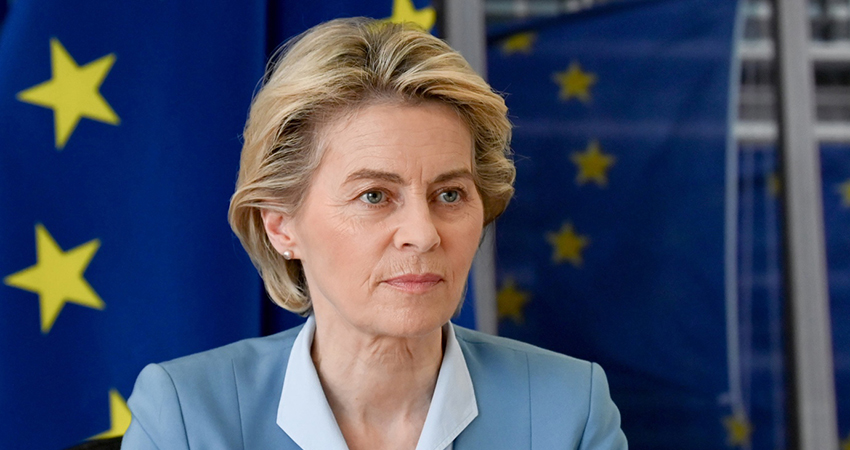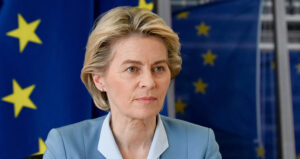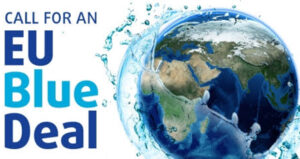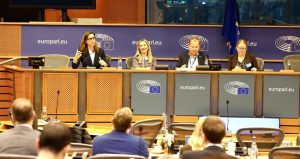European Commission postpones Water Resilience Initiative

-
 Editorial Team
Editorial Team
Share article:
The European Commission has taken the Water Resilience initiative off its agenda for the coming months. The news to ‘pause’ the initiative for water resilience has been met with disbelief and concern by many sectors. The reason why the European Commission is postponing the Water Resilience Initiative remains unclear.
The Water Resilience Initiative is an EU response to climate change driven droughts and flooding. It aims to ensure access to water for citizens, nature and the economy, while also tackling catastrophic flooding and water shortages. The delay of the presentation of the Water Resilience Initiative in March was confirmed the 15th of February during a press briefing by EC spokesperson Adalbert Jahnz. He said the work is ongoing but there is no specific planning for the publication yet. Behind the scenes is speculated the delay is caused by the recent farmer protests.
Deeply concerned about delay
EurEau, the European Federation of National Associations of Water Services, said that it “is deeply concerned over the emerging news that the European Commission will postpone the publication of the Water Resilience Initiative. In times when an increasing number of regions struggle to meet society’s water needs, this sends a negative signal to farmers, industry, tourism, water suppliers and, last but not least, nature itself. Water is central to every aspect of our life, economy and society.”
Water as a priority
The plans were scheduled to have been announced on 12 March and was born from a European Economic and Social Committee (EESC) initiative on a future EU Blue Deal, calling for a new water strategy for Europe. In September 2023, the initiative gained political momentum with a joint call by the EESC and the European Parliament, expressed in a co-signed letter to EU Heads of State and Government, calling on the Member States to support and adopt an ambitious EU Blue Deal. Furthermore, in September 2023, EESC President Oliver Röpke wrote to EC President Ursula von der Leyen and called on her to place water as a high priority on the European Commission’s agenda.
Skipped because of European elections?
Claire Baffert, Senior Water Policy Officer at WWF European Policy Office, said: “I am appalled that the Von der Leyen Commission has taken the irresponsible decision to halt the water resilience initiative when intense floods and droughts are already drowning or parching parts of Europe at an immense cost to communities, farmers, our food supply and nature. It makes absolutely no sense and can only be intended to make political gains in the run-up to the election. I urge the European Commission to put water resilience back on the political agenda.”
Blue Deal
A 22 January meeting hosted by the EESC, ‘The EU Blue Deal Initiative and the example of rivers: sustainable water management’, with opening remarks from Oliver Röpke, EESC President, and Pernille Weiss, MEP, Member of the ITRE and ENVI Committees, heard from the main stakeholders on water and EU policymakers to help identify how to better promote and implement integrated water management in Europe by focusing on the concrete example of rivers.
Focus on rivers
Speaking at the meeting Erik Orsenna, Chairman of Initiative for the Future of Great Rivers (IFGR), said the Blue Deal was essential as part of efforts worldwide “if we’re going to continue to exist on this planet. Water is a mirror. It’s a mirror of our society.” Unaware that the Water Resilience Initiative was in danger, Orsenna said: “I think that we are at a crossroads now and we have to go down the right path. We were ignorant about some of the most fundamental things. When I think about the amount of money and thinking that’s gone into the CAP (reducing the emission of CO2) and how little attention has been spent on research into saving water. We need knowledge. We need to emerge from the ignorance in which we find ourselves. The approach to water has changed but only by talking about rivers.”

















